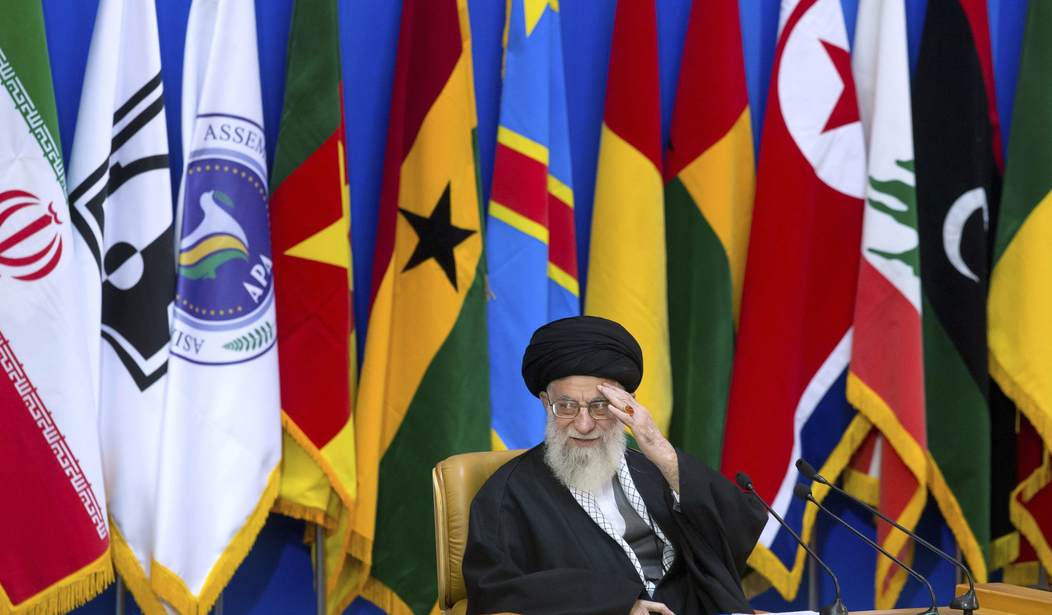WASHINGTON — Secretary of State Rex Tillerson said late Tuesday that Iran has been adhering to the nuclear agreement, but the Trump administration is going to review whether sanctions relief is still warranted because of Iran’s sponsorship of terrorism.
In a letter to House Speaker Paul Ryan (R-Wis.), Tillerson certified “that the conditions of Section 135(d)(6) of the Atomic Energy Act of 1954 (AEA), as amended, including as amended by the Iran Nuclear Agreement Review Act of 2015 (Public Law 114-17), enacted May 22, 2015, are met as of April 18, 2017.”
“Notwithstanding, Iran remains a leading state sponsor of terror through many platforms and methods,” he added. “President Donald J. Trump has directed a National Security Council-led interagency review of the Joint Comprehensive Plan of Action (JCPOA) that will evaluate whether suspension of sanctions related to Iran pursuant to the JCPOA is vital to the national security interests of the United States.”
“When the interagency review is completed, the administration looks forward to working with Congress on this issue.”
The certification of compliance must be reported to Congress every 90 days.
During campaign season President Trump said he would “rip up” the Iran deal, calling it “the worst deal ever negotiated,” but it’s been unclear how he plans to proceed in office. The European Union’s foreign policy minister, Federica Mogherini, said after a meeting with administration officials in February she “was reassured … on the intention to stick to the full implementation of the agreement and all its parts.”
Then-National Security Advisor Mike Flynn announced soon after Trump took office that “as of today, we are officially putting Iran on notice,” but didn’t elaborate on what that meant.
The State Department issues its report on state sponsors of terrorism each summer. The last report — issued during the Obama administration, which insisted that Iran’s nefarious behavior was a separate issue from the nuclear deal — found that Iran got cozier with Hamas in 2015.
Iran has been on the list since 1984, and “continued its terrorist-related activity in 2015, including support for Hizballah, Palestinian terrorist groups in Gaza, and various groups in Iraq and throughout the Middle East.”
“In addition to its ongoing support for Hizballah in Syria, Iran continued to provide arms, financing, training, and the facilitation of primarily Iraqi, Afghan, and Pakistani Shia fighters to support the Asad regime’s brutal crackdown that has resulted in the deaths of more than 250,000 people in Syria,” the report stated. “Iran more openly acknowledged the deaths of Iranian personnel in Syria in 2015, including several senior commanders, and increased Iranian troop levels, while continuing to claim publicly that Iranian forces had only deployed in an advisory role.”
The State Department also noted Tehran’s provision of weapons, funding, and training to Shiite forces in Bahrain, including a bomb-making facility discovered by Bahraini authorities last September stocked with 1.5 tons of high-grade explosives.
“Although Hamas’s ties to Tehran have been strained due to the Syrian civil war, both sides took steps in 2015 to repair relations. Iran continued to declare its vocal support for Palestinian terrorist groups and its hostility to Israel in 2015,” the report added. “Supreme National Security Council Secretary Admiral Ali Shamkhani sought to frame a series of individual Palestinian attacks on Israeli security forces in the West Bank as a new ‘Intifada’ in a speech on November 25.”
Tehran has also been rearming Hezbollah in violation of a UN Security Council resolution at the end of the 2006 conflict with Israel, pouring “hundreds of millions of dollars” into arms and training of fighters who have “carried out isolated attacks along the Lebanese border with Israel.”
“Iran remained unwilling to bring to justice senior al-Qa’ida (AQ) members it continued to detain and refused to publicly identify the members in its custody. Iran previously allowed AQ facilitators to operate a core facilitation pipeline through Iran since at least 2009, enabling AQ to move funds and fighters to South Asia and Syria.”









Join the conversation as a VIP Member